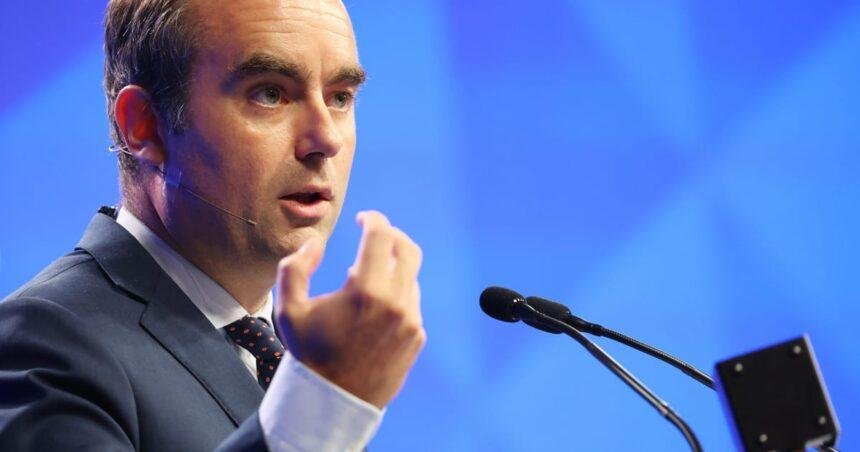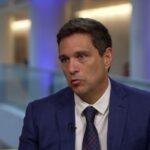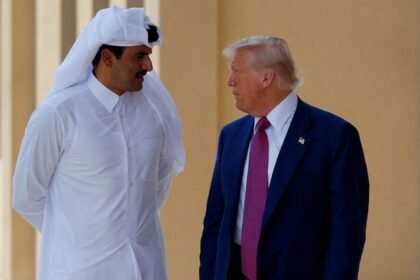France’s New Prime Minister Faces Budgetary Challenges Amid Political Deadlock
In a time of political uncertainty, France’s newly appointed Prime Minister, Sébastien Lecornu, is stepping into a challenging role as he seeks to navigate the complexities of a divided legislature. His appointment comes on the heels of François Bayrou’s resignation, which was precipitated by failed budget proposals that sparked significant controversy. Lecornu’s mission is clear: to stabilize the government and secure a budget that addresses the nation’s pressing financial issues.
A Nation at a Crossroads
Lecornu’s remarks during his official handover ceremony reflect a sense of urgency and determination. “It is always in times of deadlock and tension that our country has moved forward,” he stated, emphasizing his desire for neither instability nor immobility. This sentiment resonates deeply in a nation grappling with a staggering debt of €3.3 trillion and a budget deficit that stands at 5.4% of its economic output.
The backdrop of Lecornu’s appointment is a political landscape marked by fragmentation. Following President Emmanuel Macron’s decision to call snap parliamentary elections last year, the French Assembly has been left with a split legislature. This division has stymied policymaking, making it increasingly difficult for the government to implement necessary reforms.
The Budgetary Dilemma
The urgency of Lecornu’s task cannot be overstated. France’s financial situation demands immediate attention, as the country seeks to rein in spending and address its burgeoning debt. The previous administration’s attempts to push through budget cuts were met with fierce resistance, culminating in Bayrou’s resignation on September 8. Lecornu now finds himself in a precarious position, tasked with garnering support from both the center-left Socialists and the conservative Les Républicains to secure a viable budget.
Historically, budgetary negotiations in France have often been contentious. The current political climate echoes past struggles, such as the austerity measures implemented during the European debt crisis in the early 2010s. These measures were met with widespread protests and public discontent, highlighting the delicate balance between fiscal responsibility and social stability.
Building Coalitions
Lecornu’s strategy appears to hinge on coalition-building. In his inaugural address, he expressed optimism, stating, “I want to tell the French … we will get there.” This message is crucial as he seeks to unite disparate political factions to achieve a common goal. The challenge lies in reconciling the differing priorities of the Socialists, who advocate for social spending, and the Républicains, who emphasize fiscal conservatism.
The political landscape in France has evolved significantly over the past decade. The rise of Macron’s centrist party, La République En Marche!, disrupted traditional party dynamics, leading to a more fragmented political environment. This fragmentation complicates Lecornu’s efforts, as he must navigate a complex web of alliances and rivalries.
Historical Context
To understand the current situation, it is essential to consider France’s historical relationship with fiscal policy. The country has a long history of balancing social welfare with economic stability. The post-World War II era saw the establishment of a robust welfare state, which has been a point of pride for many French citizens. However, as global economic pressures mount, the sustainability of this model is increasingly questioned.
The challenges Lecornu faces are not unique to France. Many European nations are grappling with similar issues, as the COVID-19 pandemic exacerbated existing economic vulnerabilities. Countries like Italy and Spain have also struggled with high debt levels and political fragmentation, leading to calls for comprehensive reforms.
The Road Ahead
As Lecornu embarks on this critical journey, the stakes are high. The success of his administration will depend on his ability to forge consensus and implement effective policies that address the nation’s financial challenges. The upcoming budget discussions will serve as a litmus test for his leadership and the resilience of the current government.
Public sentiment will play a crucial role in shaping the political landscape. Citizens are increasingly aware of the implications of government spending and fiscal policy on their daily lives. Lecornu’s ability to communicate effectively with the public and garner their support will be vital in navigating the turbulent waters ahead.
Conclusion
Sébastien Lecornu’s appointment as Prime Minister comes at a pivotal moment for France. With a divided legislature and pressing financial challenges, he faces an uphill battle in securing a budget that balances fiscal responsibility with social welfare. As he seeks to build coalitions and navigate the complexities of French politics, the eyes of the nation will be on him. The path forward is fraught with challenges, but Lecornu’s determination to move beyond instability may ultimately define his tenure and the future of France.











